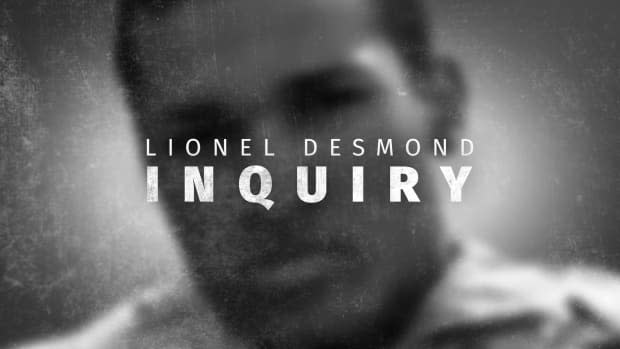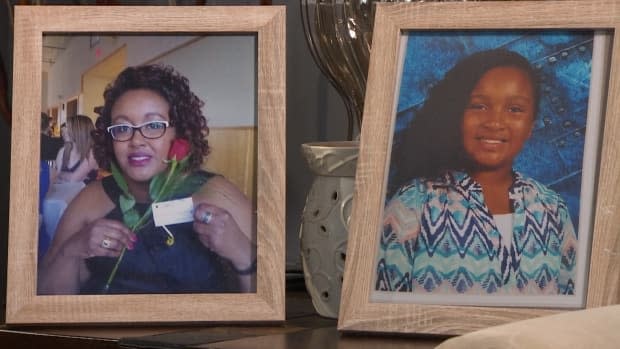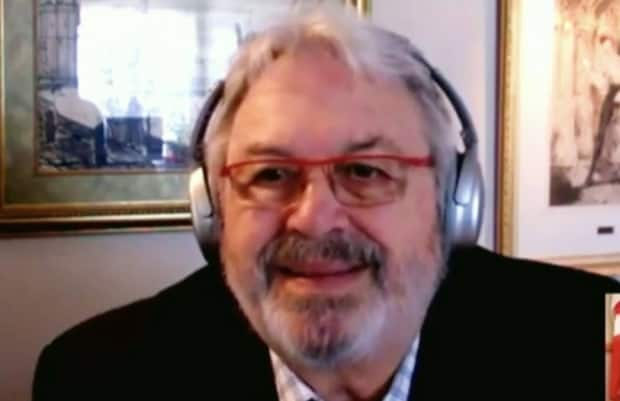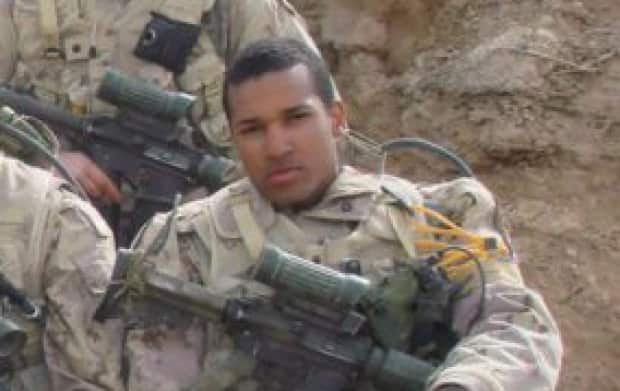N.S. veteran who killed his family, himself should not have been allowed to own a gun: psychiatrist

The Montreal psychiatric facility designed to help veterans recover from post-traumatic stress disorder no longer allows clinicians to sign paperwork for patients seeking a licence to buy a gun.
Testimony at the Lionel Desmond inquiry Tuesday revealed that the Ste. Anne's Hospital made the change more than two years ago, according to psychiatrist Dr. Robert Ouellette.
Administrators made the change after Desmond, an Afghanistan veteran with severe PTSD, killed his wife, Shanna, his 10-year-old daughter, Aaliyah, and his mother Brenda on Jan. 3, 2017, before turning the gun on himself.
While the decision followed the triple murder-suicide, Ouellette did not directly link it to the deaths of the family in Guysborough County, N.S.
But exactly how a veteran as ill as Desmond was able to legally acquire firearms has been one of the key items under scrutiny throughout the inquiry.
The CBC's Laura Fraser was liveblogging the inquiry:
And Ouellette testified on Tuesday that, even without the policy change, he wouldn't have signed off any paperwork for Desmond to get a gun licence.
"He had real problems with anger," said Ouellete, who saw Desmond during his treatment at the Montreal hospital in the spring of 2016. "He should have undergone anger management and anger treatment before having firearms."
Ouellette's testimony — and the hospital's directive — create a stark contrast to what the inquiry has heard from two of Desmond's other doctors, both of whom signed medical paperwork in separate reviews of the former corporal's firearms licence.
Dr. Vinod Joshi, the psychiatrist who treated Desmond at CFB Gagetown in New Brunswick, described him as stable in November 2014 in signing a medical form for the New Brunswick firearms office. Desmond's licence renewal had been flagged, because he hadn't disclosed he had PTSD.
A firearms officer found out when he called one of Desmond's references.

But Joshi testified last week that he considered it a positive sign that Desmond wanted to get back to doing something he used to love: going hunting with his friends. He noted that Desmond hadn't shown any suicidal or homicidal risk.
Joshi's decision — and the decision by Dr. Paul Smith, a physician Desmond saw in 2015 in the Fredericton area, to sign off on another review in 2016 — have been resoundingly criticized by Desmond's sisters and by the Shanna Desmond's family, the Bordens.
In fact, when Sheldon Borden testified before the inquiry last month, he told the judge that no soldier with acute PTSD should have permission to own a firearm. Borden included himself in that declaration, having been released from the military in January after experiencing both racism and PTSD.
Other mental health professionals at the inquiry disagreed with the families, saying that hunting or going to the range can be a critical part of a veteran's or soldier's identity. And, one of Desmond's former psychologists testified, if someone is in remission from an illness, it would be discriminatory to deny them access a gun licence.
Needed anger management
Ouellette's testimony offered the inquiry insight about Desmond's state of mind just a few months before January 2017, when he bought the SKS 762 semi-automatic rifle he used in the fatal shootings.
The psychiatrist testified that Desmond made some improvement during the stabilization period of his treatment in Montreal: he began to sleep better, he had fewer nightmares and he was motivated by a stated desire to be a better husband and father.

But Ouellette said the veteran was resistant to taking the medication he needed to manage symptoms of "multiple personality traits," including paranoia and anger. He was concerned that Desmond's progress would stagnate because of that refusal.
Desmond's anger manifested in nightmares — including at least one in which he killed his wife, Ouellette told the inquiry. It was the first time that the inquiry heard about that level of violence in Desmond's nightmares; previous testimony has touched on bad dreams about Afghanistan that later gave way to ones about his wife being unfaithful.

The nightmare Desmond had about killing was likely rooted in the violence and trauma of his PTSD, Ouellette told the inquiry. But he said it was still very unusual and that there may have been more to the nightmares.
"Usually, the dreams, the nightmares that the military have are related to the trauma they have during missions. Sometimes they see the enemy coming at them, trying to kill them — or they are trying to kill the enemy."
Desmond would also direct his anger at a memory of being targeted by racism by a fellow soldier. The incident involved a platoon-mate asking him why "white milk wasn't good enough" for him as Desmond, who is Black, drank chocolate milk.
When asked whether racism might have exacerbated Desmond's PTSD symptoms, Ouellette testified that it likely did. If he felt rejected by his peers, it would have cut him off from an important source of support.
"If the others around are aggressive or rejecting you then it can worsen your distress," he testified.
The psychiatrist agreed with inquiry counsel that having a peer support worker or mentor of the same cultural background might have helped Desmond in this case — and would be an excellent recommendation for other soldiers and veterans.

